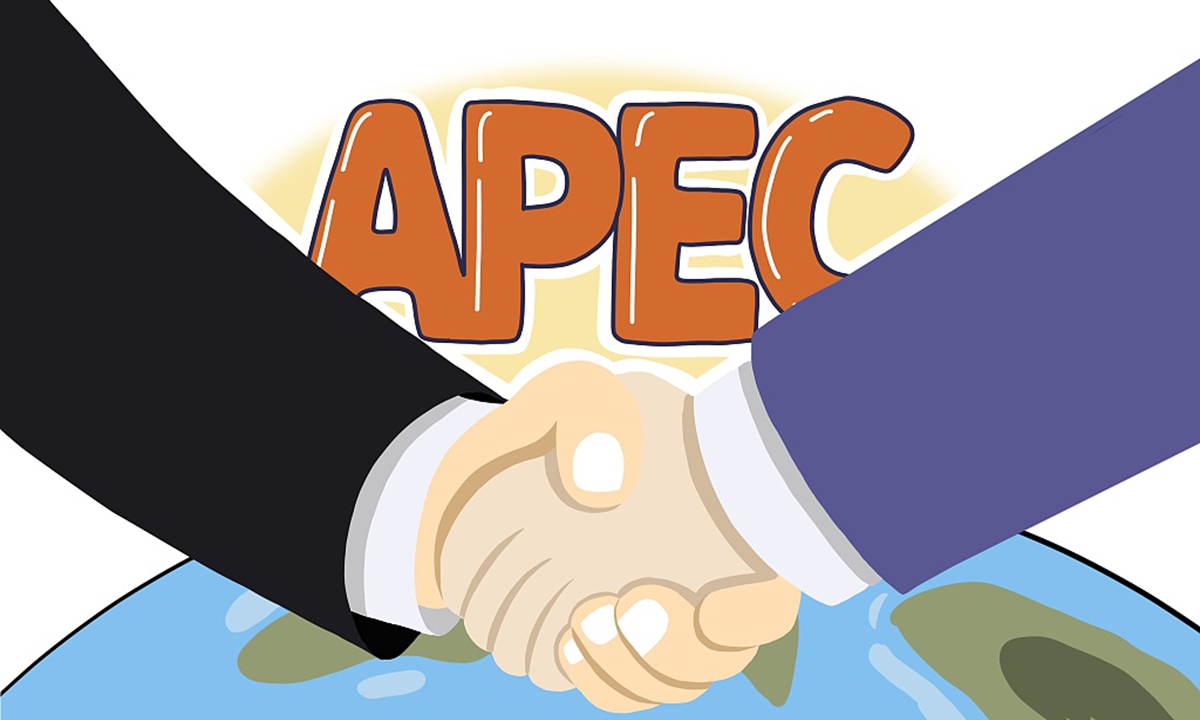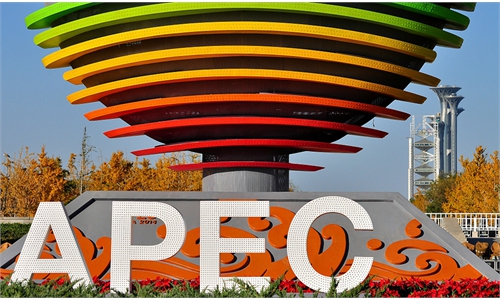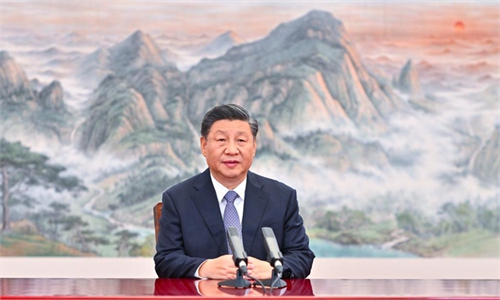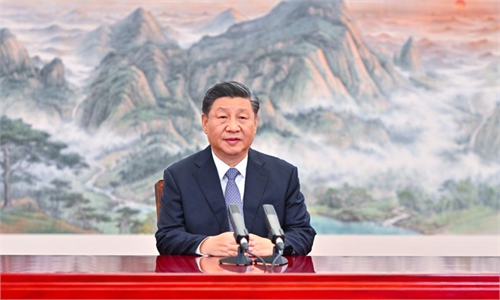Xi stresses free trade in Asia Pacific, says drawing ideological lines ‘bound to fail’
Greater openness to boost regional growth amid uncertainties: experts

APEC Photo: CFP
President Xi Jinping on Thursday stressed the building of high-standard free trade areas to boost regional economic growth, while saying that attempts to draw ideological lines or form small circles are bound to fail, during a keynote speech delivered at the APEC CEO Summit via a prerecorded video.
The call for greater trade openness would serve as a cure for the regional economy that has seen relatively faster recovery from the COVID-19 pandemic but still faces uncertainties amid the pandemic and geological tensions, Chinese experts noted.
"We should all be broad-minded, follow the underlying trend of the times and proactively expand opening-up. We should advance trade and investment liberalization and facilitation, keep industrial and supply chains stable and functioning, and promote the orderly flow of resources and inputs to boost economic recovery and achieve interconnected development," Xi said, according to the Xinhua News Agency.
Calling for rejecting practices of discrimination and exclusion of others, Xi stressed that attempts to draw ideological lines or form small circles on geopolitical grounds are bound to fail. "The Asia-Pacific region cannot and should not relapse into the confrontation and division of the Cold War era," the Chinese president said.
The remarks targeted some countries that embrace protectionism, unilateralism and "small circles" under the cover of multilateralism, which does not conform to the common benefits of the region, Jiang Yuechun, director of the Department for World Economy and Development Studies at the China Institute of International Studies, told the Global Times on Thursday.
China has been actively promoting free trade in the region. China has ratified the Regional Comprehensive Economic Partnership (RCEP), and has applied to join the Comprehensive and Progressive Agreement for Trans-Pacific Partnership (CPTPP).
In the course of RCEP implementation and CPTPP negotiation, China will continue to shorten the negative list for foreign investment, promote comprehensive opening-up of its agricultural and manufacturing sectors, expand the opening of the services sector, and treat domestic and foreign businesses as equals in accordance with law, Xi stated during his speech.
On the eve of the opening ceremony on November 4 of the 4th China International Import Expo - the world's largest import fair - China's Ministry of Commerce (MOFCOM) said in a late-night statement that after 10 members deposited the instrument of ratification with the ASEAN Secretary-General, the RCEP, the world's biggest trade pact, is scheduled to come into force on January 1 for the 10 members, as agreed upon.
The RCEP is expected to give a vigorous boost to regional trade and investment growth, improve the region's overall business environment and solidify regional supply chains, MOFCOM spokesperson Shu Jueting told reporters on Thursday.
All preparations for RCEP implementation have been completed domestically, according to Shu, vowing that the country is capable of fully honoring its obligations when the deal takes effect.
In the wake of the RCEP implementation, China's trade ties with Japan, the only country of the 15-member bloc that China doesn't have a free trade deal with, is set to get a conspicuous tailwind, Bai Ming, deputy director of the International Market Research Institute at the Chinese Academy of International Trade and Economic Cooperation, told the Global Times on Thursday.
Reckoning the trade pact to put the world's second- and third-largest economies on the same platform, Bai believed the regional economy will surely gain momentum over its recovery from the COVID-19 pandemic.
The long-anticipated trilateral free trade deal among China, Japan and South Korea is on track to be expedited also, after the RCEP proves effective in fostering regional growth, the expert said, citing the cumulative rules of origin under the RCEP framework as a major source of optimism on the deal's longer-term benefits to all members.
The rules enable materials to be cumulated across the RCEP membership during the production process to decide whether a product has origin status, thereby enabling tariff removals without the need to show process in various sections of the entire production chain.
APEC accounts for over one-third of the world population, half of global trade and around 60 percent of global GDP, and it aims to establish the Free Trade Area of the Asia Pacific among its 21 members, the Xinhua News Agency has reported.
According to the APEC Regional Trends Analysis, which was released on Monday, the total economy of the APEC members is expected to grow by 6 percent in 2021 and by another 4.9 percent in 2022, backed by their fiscal and monetary support measures.



